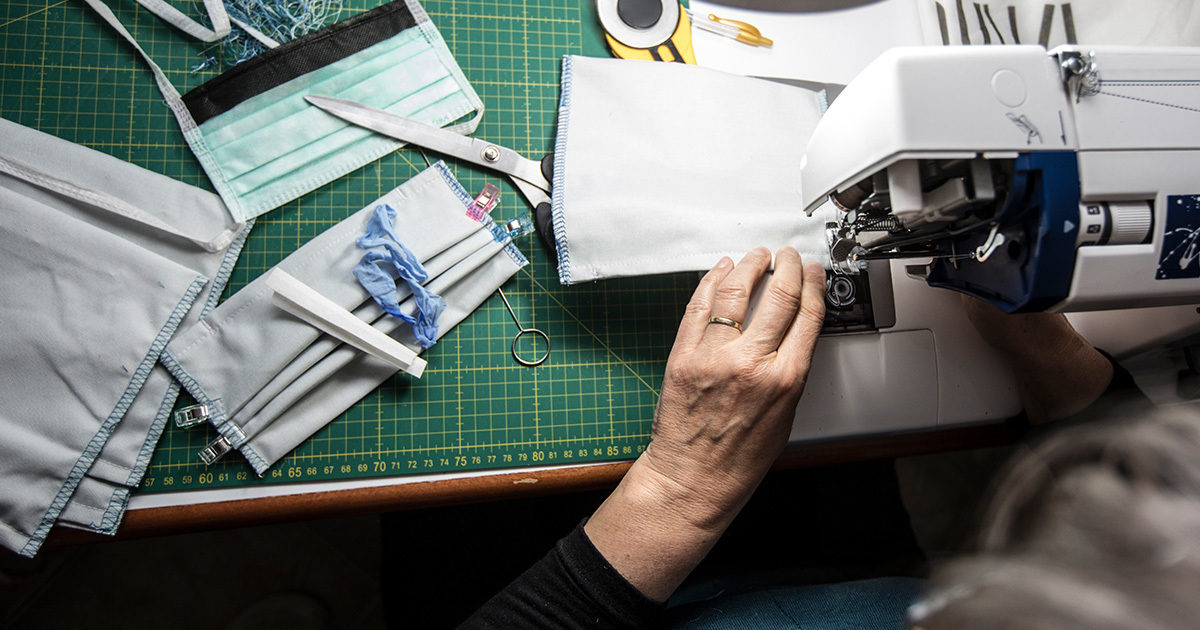Slowing the Spread of COVID-19 One Mask at a Time
How cloth face masks provide additional public health measures
Sourced from the Centers for Disease Control and Prevention
Written by: Ashley Lawrence

The Centers for Disease Control and Prevention (CDC) has recommended wearing cloth face masks in pubic settings where maintaining a physical distance of six feet has proven to be difficult. These common areas include parking lots, grocery stores, pharmacies, drive-thru locations, and more. However, wearing a cloth mask does not supersede social distancing practices.
You are likely aware that, like many respiratory viruses, COVID-19 spreads through airborne particles. These particles float through the air from one person to another, within a six-foot radius, and transmit the virus by entering the body through the mouth, nose, or eyes. Wearing a cloth face mask that covers the mouth and nose restricts the release of particles and prevents airborne invasion.
Wearing Your Mask
Symptoms of COVID-19 can take up to 14 days to appear. However, some people are asymptomatic, meaning they never experience symptoms and are likely unaware that they are a carrier of COVID-19. As a voluntary health measure, cloth face masks should be used to further prevent the spread of COVID-19.
Cloth face masks are meant to keep your germs in rather than keeping other germs out. To ensure your mask is most effective, it should:
- Fit comfortably tight around your nose and mouth without touching your lips
- Be secured with ties or ear loops to prevent movement
- Include multiple layers of fabric, but allow for breathing without restriction
- Be able to be cleaned without altering its shape or effectiveness
Cloth face masks should not be used on individuals who:
- Are under the age of 2
- Have trouble breathing
- Are unable to remove their mask without assistance
Removing Your Mask
By now, you are probably sick of hearing people telling you not to touch your face. Well, the same goes for your cloth face mask. While it may be inevitable, try not to constantly adjust your mask. Each time you touch your mask, your hands are considered contaminated and should be washed immediately.
When removing your cloth face mask, be careful not to touch your mouth, nose, or eyes. You should:
- Try to remove your mask by its strings
- Disinfect your mask
- Store your mask in an area free of contamination
Cleaning Your Mask
After wearing your cloth face mask out in public, it should be cleaned immediately. Designate one area for both the removal and cleaning of your contaminated mask, whether that be directly into the washing machine or a special box or bin. You may want to have more than one mask on hand to ensure a clean mask is available at all times.
To keep your cloth face mask clean, you can:
- Wash your mask in a washing machine with hot water
- Wash your mask in a sink with hot, soapy water
- Disinfect your mask with spray or wipes
- Seal your mask tightly in a bag for 72 hours